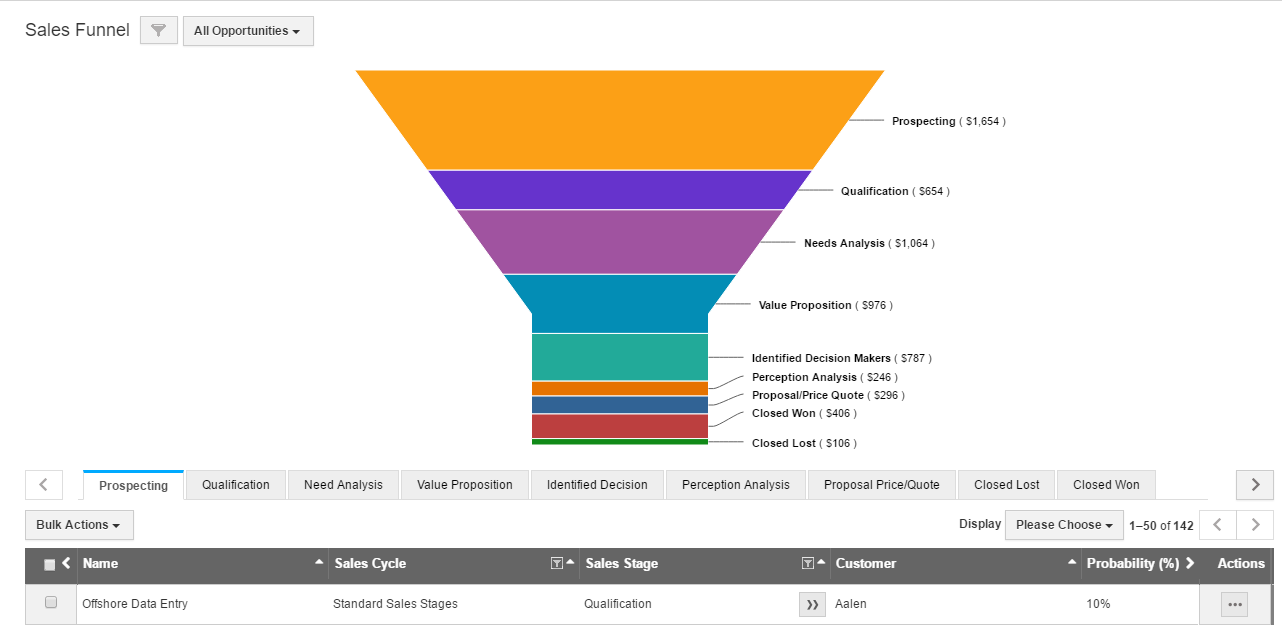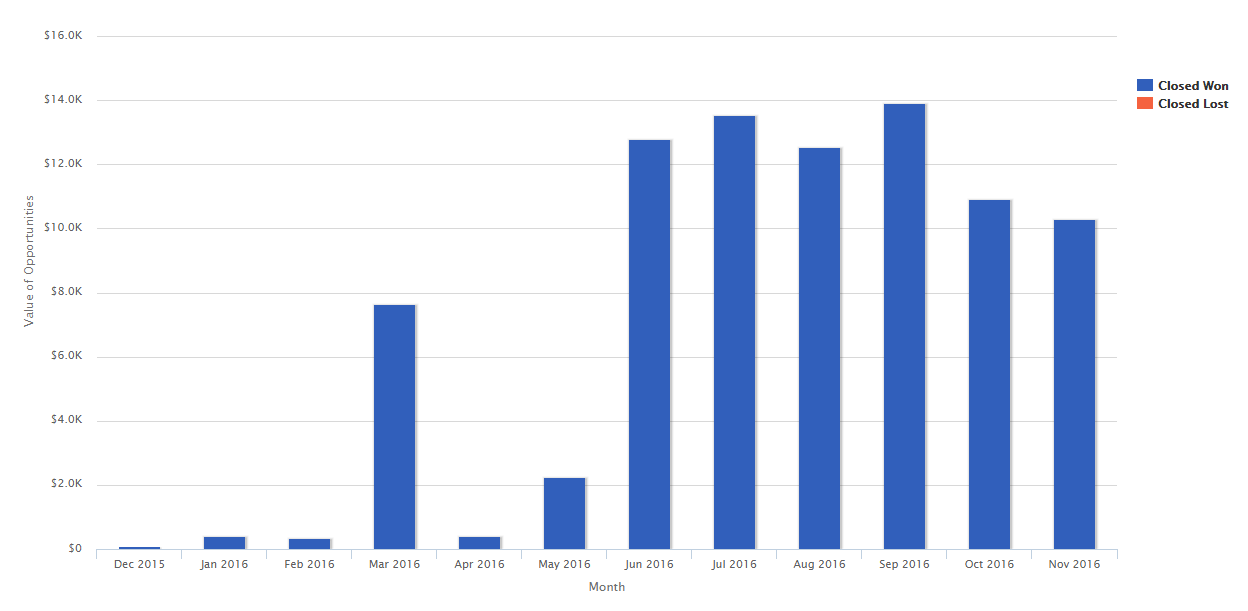If a marketer has a good knowledge about his target customers, he would be able to strategize his marketing campaigns in such a manner that the outcome is a successful one. He will be able to invoke the interests of the existing customers, so they make new purchases, re-engage the dormant and returning customers and also attract new ones. In brief the marketing team would ensure that sales pipeline has good and genuine leads that can be converted into opportunities.
The sales of a product or service is bound to increase when the marketing strategies target the specific requirements of the customers. In the current business scenario, Marketing, Sales and customer relationships are interconnected. To analyze the success of a marketing campaign and closure of sales deals, you need to integrate a software that will contain the complete information of the customers as well as the potential customers, help analyze the data, pull in the big data from the social networking channels and so on. That software is none other than CRM.
CRM (Customer Relationship Management) software is a tool that records the likes and dislikes, spending patterns as well as other details of the customers such as their geographical location, age and gender. This data helps a marketer to segment his customer base into groups of buyers with different tastes and budget. It also gives a clear picture regarding the most profitable customers and also the promising prospects. Using this data marketers can design new strategies and tactics to lure the existing as well as potential customers.
Five Uses of CRM For Marketers
Send Personalized Messages to Retain Customers
CRM holds the relevant data of the company’s valued customers as well as the potential ones. This data is used to create personalized communication by the marketers and also send it to the concerned customers with the help of a few mouse clicks. The relevant personalized message help to re-engage with the dormant customers, the returning ones as well as potential customers. A well written push the potential customers through the sales funnel.

Cloud Based Customer Data
Experts opine that by the end of 2016, approximately 50 percent of the CRM software will be cloud-based. They also estimate that by 2018, there will be an increase in cloud-based CRM by 12 percent. This move will help the marketers who are on the move frequently to access the data from anywhere and also integrate other software and technology solutions they are using. Also, CRM will provide an opportunity to the marketers to leverage the data in many strategic ways for their marketing campaigns.
CRM Systems Help to Integrate Beacons
One the challenges faced by the marketers nowadays is to create seamless shopping experience to their customers who are habituated to frequently change their mobile devices and those who shop online and also in-store now and then. Beacons aids in communication by collecting the data and sending push notification to the relevant customers. This technology is vital for the various brands as they can easily capture customer signals both online as well as in-store. Beacons can be integrated with CRM systems for improved customer engagements.
CRMS as a Social Media Tool
Most of the reputed CRM systems can be seamlessly integrated with social media platforms. This enhances the tracking of customer engagement and interactions across various social media platforms. Marketers can use this data to analyze the specific needs of the customers and strategize marketing campaigns accordingly. Customer interactions across social media makes it easy for the marketers to study customer behavior.
Timely Follow-up and Success Tracking
This example will give a clear picture about timely follow up. When a client or customer makes a comment on the company’s Facebook business page, it should trigger a workflow for the social media manager to respond to the client almost immediately. If the CRM is integrated with social platforms, the marketers can send out personalized messages when a specific activity is performed by the customer. These messages in turn should drive the potential lead down the sales funnel. A CRM integrated with marketing system gives an invaluable insight into how the customers and potential leads respond to the marketing campaigns. Marketers can analyze this data to create better marketing strategy for optimal conversion rates.
Why Marketers Use CRM Systems for Marketing Metrics
As per the findings of a survey conducted by Beagle Research group the most commonly used software by marketers is CRM systems. Using a reputed CRM software will enable the marketers to
- Work in tandem with the sales- Sales teams practically live in the CRM system to keep track of the opportunities, potential lead as well as to forecasts. A CRM system that enables the integration of the marketing tools allow both the marketing team and the sales team to access the same data to measure their results. The marketing team hands over the Marketing Qualified Lead (MQL) to the Sales team using the integrated CRM system. A qualified lead is a prospect whose attention marketing team was able to capture. This lead has to be nurtured till its sales-ready. If a CRM software is integrated it will allow both the sales as well as the marketing team to see total number of hot and warm leads. This enables the team to create a strategic and professional workflow to nurture the lead so the sales deals of all the sales-ready lead can be closed. A CRM system will help both the marketing as well as the sales team to focus on how to generate additional revenue.
- Accurately measure their results to pipeline and revenue- The core data inside a CRM system is the pipeline data. There are times when not only the sales but also tele sales personnel generate leads that are not tied with any marketing campaigns. However, during the initial sales cycle, the potential customer would have been responding to a particular marketing campaign. The marketing team can gauge the success of their campaigns and the amount of revenue generated by analyzing the relevant data that is associated with the prospects.

CRM systems have evolved from managing client relationships to marketing and sales automation, enhancing effective customer engagement and people based marketing tactics. If you have still not implemented a CRM in your small business, now is the time to do so.


